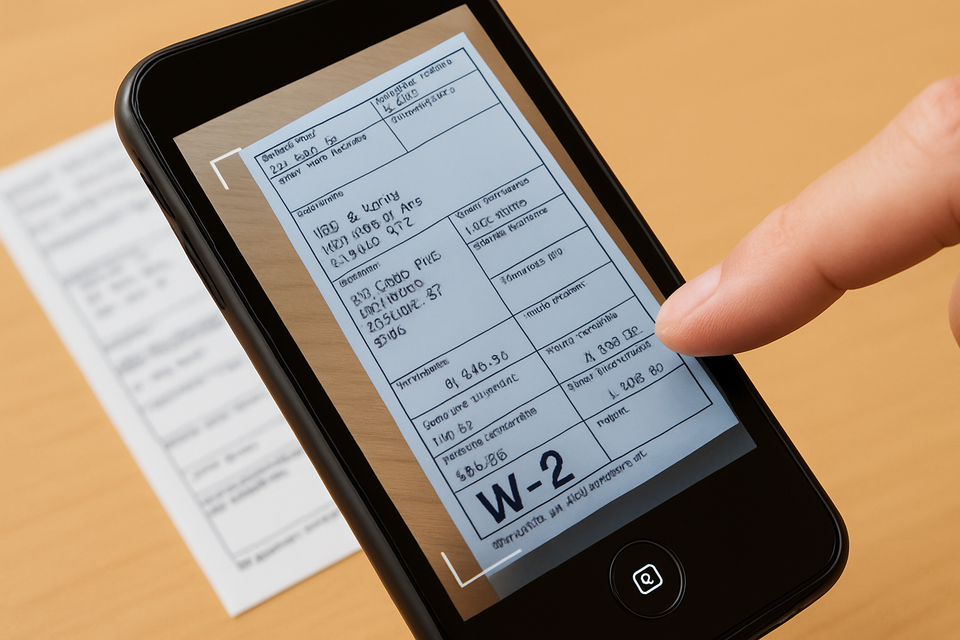SnapTax by Intuit: A Lean Startup Inside a Corporate Giant

While The Lean Startup is often associated with garage-stage founders, one of the The Lean Startup’s most compelling case studies comes from the halls of a Fortune 500 company: Intuit, the maker of TurboTax. In a bold experiment, a small internal team launched SnapTax, a mobile-first tax filing app—and in doing so, rewrote the rules for how innovation happens in large organizations.
🎯 The Vision: Do Your Taxes With a Photo
The SnapTax team set out to solve a clear user pain point: filing taxes is a frustrating, time-consuming process. What if users could just take a picture of their W‑2 form, and the app would do the rest?
That simple idea—a photo-driven tax return—was the hook. But the real product breakthrough came from something the team didn’t expect: users didn’t just want help with data entry—they wanted to complete the entire return on their phone.
“We kept hearing, ‘Can I just do the whole thing on my phone?’ That question changed the trajectory of the product.”
🧪 The MVP: Small, Focused, and Fast
Rather than attempt to recreate TurboTax on mobile, the team made a deliberate decision to start small. Their Minimum Viable Product (MVP) had tight constraints:
- Only supported 1040EZ returns (the simplest tax cases)
- Initially limited to California residents
- Required a photo of the user’s W‑2 to prefill basic information
This allowed them to test their leap-of-faith assumptions with real users while minimizing engineering overhead and regulatory complexity.
“By starting with a small, well-defined subset of customers, we could learn faster and reduce waste.”
🚀 Results: Rapid Growth and Clear Signals
After refining the product, SnapTax launched nationally in 2011.
- It received over 350,000 downloads in just the first three weeks.
- Users loved the ease and speed—it turned a stressful, time-consuming task into a 10-minute experience.
- More importantly, the data showed high conversion and completion rates within the app—validating both the value and growth hypotheses.
🔁 Learning, Not Just Shipping
The SnapTax team lived by the Build–Measure–Learn loop:
- Build: Narrow MVP targeting one segment.
- Measure: Collected feedback and tracked completion, satisfaction, and conversion.
- Learn: Pivoted from “W‑2 scanning helper” to “end-to-end mobile tax filing.”
They didn’t just add features; they made strategic product decisions based on user behavior, not internal roadmaps.
🛠️ Product Strategy Lessons
- Start with a strong hypothesis—but adapt fast.
The photo-scanning idea brought users in, but their demand for full mobile tax filing led the product in a new direction. - Don’t overbuild—overlearn.
Limiting the product scope allowed SnapTax to learn quickly and safely in a complex regulatory space. - Great products solve the whole problem.
A partial solution (just scanning a W‑2) wasn’t enough. Users wanted to file and finish on mobile.
🧠 Organizational Context
Though this is a product story, it’s worth noting: SnapTax came out of Intuit’s experimental innovation lab, supported by CEO Brad Smith and founder Scott Cook. They gave small teams autonomy to test ideas fast—a rare level of freedom in large companies.
This reflects a key Lean Startup principle: innovation requires protected spaces to test, fail, and iterate, even inside large enterprises.
“Intuit made a bet: that small, cross-functional teams, empowered to experiment, could move faster than its core business units.”
📈 The Outcome
SnapTax wasn’t just a successful side project—it became:
- A core mobile offering within Intuit’s TurboTax suite
- A validation of Lean Startup practices inside large, regulated companies
- A model that inspired broader lean experimentation culture across Intuit
🔄 Why SnapTax Matters
SnapTax showed that even in a complex domain like tax software:
- You can start with a narrow MVP
- You can learn from real user behavior
- You can deliver disruptive experiences without betting the whole company
It wasn’t just a tech success—it was a learning success, and a shining example of what The Lean Startup teaches at its core:
“The only way to win is to learn faster than anyone else.”
Other Story From the Book


Member discussion